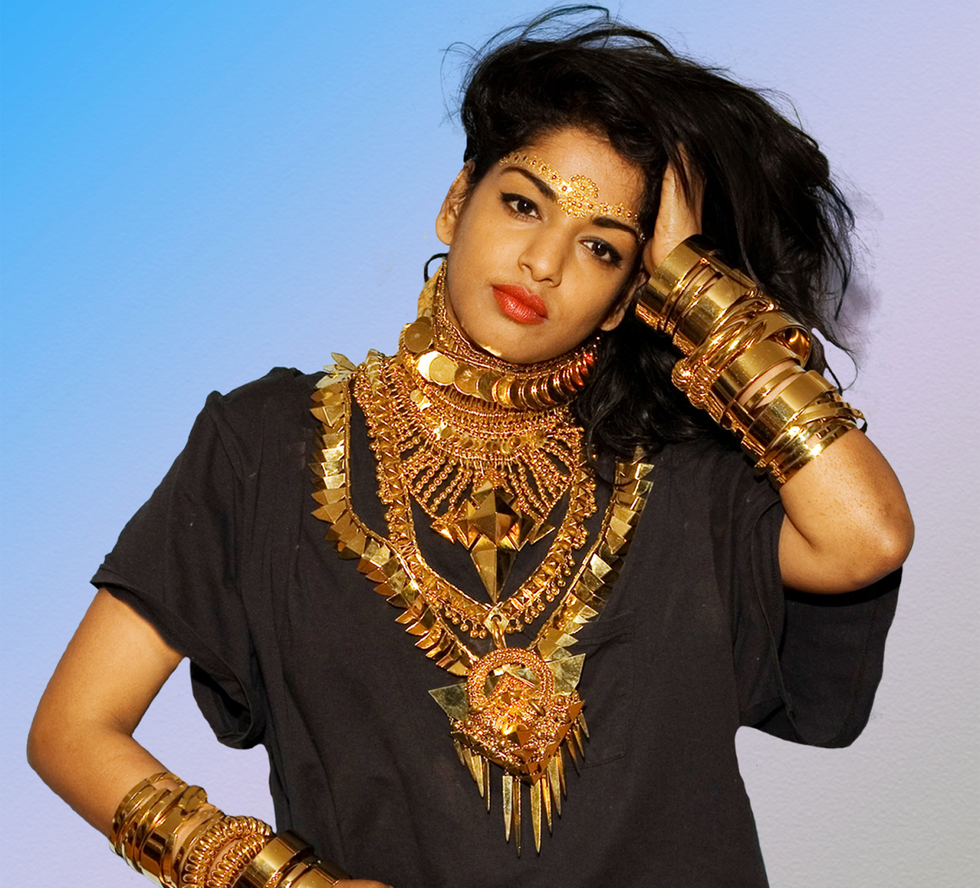Mathangi "Maya" Arulpragasam — or as most know her, M.I.A — is no stranger to controversy. From making headlines for her relationship with Diplo back in 2006, she was reportedly banned from entering the country for a short period of time, but this time she is again making waves with another political message.
In January, 2012 she dropped the politically charged single, "Bad Girls." Not only did the song hold a strong message but it was also a massive hit. "Bad Girls" reached number ten on the Billboard Bubbling Under Hot 100 and went to the play soundtrack to Grand Theft Auto V and Sofia Coppola's "The Bling Ring". Though the lyrics "Live fast, die young / Bad girls do it well" may seem reckless, they serve a much a deeper meaning. The song then goes onto say, "Suki suki, I'm coming in the cherokee" and the video features Saudi Arabian woman driving. "Suki, suki" is Arabic for "drive, drive": in Saudi Arabia woman are not allowed to drive. Ultimately the song and video serve as a form of female empowerment, referring to the woman as "bad girls" for being bold enough break the crooked laws that have been set for them.
But now she's back again with her latest single "Borders" from her forthcoming album. The song opens with the lyrics, "Borders, what's up with that?" and continues to touch on current issues such as political corruption, police brutality and of course the ongoing refugee crisis. This is an issue among many others that hits close to home for the artist. At age nine she fled Sri Lanka for London with her mother before the start of a war and she is now left wondering why the West has such a negative attitude towards helpless refugees.
Recently M.I.A sat down for an interview with NPR and was quoted saying, "As a musician, I feel like we are part of promoting ideas to people,” she explains. “Ultimately, we fight to get what we do in the west into the homes and the screens of every single person on the planet, and we want to make money off it. We want to sell 50 million Taylor Swift records to people in Africa… We can’t really blame people when they are ready to embrace it,” before posing the question: “If the West is so deliberate in promoting its brands and is using art and culture to inspire people’s dreams, how can the West then turn people away?” I think she has a point worth recognizing. How can America be so eager to sell their products to these people and make a profit off of them but ignore their cries for help?
Check out the video below.























